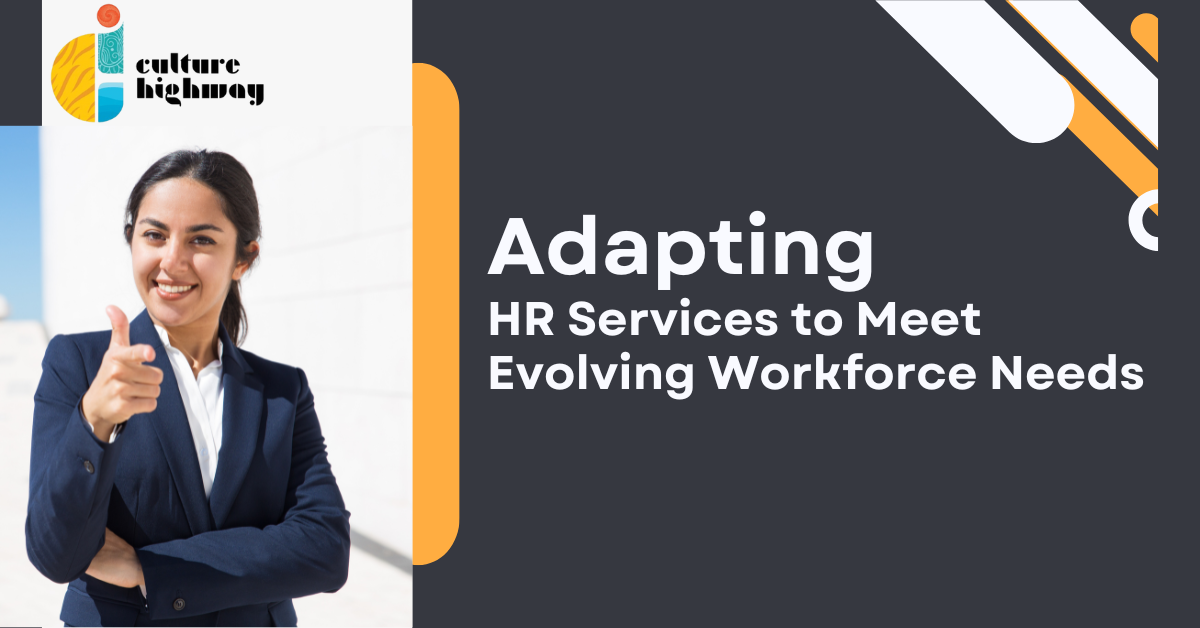Adapting HR Services to Meet Evolving Workforce Needs
HR services are the foundation of a great employee experience. They go beyond paperwork and policies, shaping how employees feel about their work, their colleagues, and their future within the company. From recruitment to career development, HR services create a supportive environment where employees can thrive.
But how do HR services actually enhance the employee experience? And what role does technology play in this transformation? In this article, we’ll explore the essential HR services that drive engagement, retention, and overall job satisfaction.
HR Services: The Heartbeat of a Thriving Workplace
HR services are no longer just about hiring and payroll. They play a strategic role in aligning employee goals with business objectives. A strong HR function ensures that employees feel supported, valued, and motivated to contribute to the company’s success.
Here’s why HR services matter:
✅ They create a positive work environment – HR helps build a culture of trust, fairness, and inclusivity.
✅ They enhance engagement and productivity – Engaged employees perform better, innovate more, and stay longer.
✅ They ensure legal compliance – HR keeps businesses up-to-date with labor laws and workplace regulations.
With the right HR strategies, companies can cultivate an environment where employees are excited to come to work every day.
Key HR Services That Drive Employee Engagement
Engagement isn’t just about job satisfaction—it’s about feeling connected to the company’s mission and having a sense of purpose at work. HR services play a crucial role in fostering this connection.
Here are some key HR services that directly impact engagement and satisfaction:
Talent Acquisition & Onboarding – Finding and integrating the right talent is the first step toward building a strong workforce. A structured onboarding process helps new hires feel welcome and prepared for success.
Training & Development – Continuous learning opportunities help employees grow in their careers and feel more confident in their roles.
Recognition & Rewards – Employees who feel appreciated are more likely to stay engaged. HR services create programs that acknowledge hard work and celebrate achievements.
Employee Relations & Feedback – HR facilitates open communication, helping resolve workplace issues and ensuring that employees feel heard and valued.
Health & Wellness Initiatives – Work-life balance is crucial. HR-driven wellness programs can boost employee morale, reduce stress, and improve overall well-being.
When employees have access to these HR services, they feel supported and engaged—leading to higher productivity and better business outcomes.
The Digital Transformation of HR Services
Technology has completely changed the way HR services operate. Today’s HR departments use cloud-based platforms, artificial intelligence (AI), and automation to create a more seamless and personalized employee experience.
AI-Powered Recruitment – AI helps HR teams identify the best candidates faster, reducing hiring time and improving accuracy in talent matching.
HR Analytics for Better Decision-Making – Data-driven insights allow HR professionals to track engagement levels, performance trends, and retention risks.
Remote Work Solutions – Virtual collaboration tools and digital HR services support a global workforce, making it easier to manage remote and hybrid teams.
Self-Service HR Platforms – Employees can access HR resources, update personal information, and request time off through user-friendly portals, reducing administrative burdens.
By embracing digital HR solutions, companies can streamline processes, enhance engagement, and improve the overall employee experience.
Workforce Solutions: Adapting to Changing Employee Needs
The workplace is evolving, and so are employee expectations. HR services must be flexible enough to adapt to these changes.
Hybrid & Remote Work Support – Employees value flexibility. HR services that provide remote work policies, virtual onboarding, and digital collaboration tools help businesses attract and retain top talent.
Personalized Career Development – Employees want clear growth paths. HR services that offer mentorship programs, skill development courses, and internal mobility opportunities help retain talent.
Diversity & Inclusion Initiatives – A diverse workforce leads to innovation and better decision-making. HR services must ensure hiring practices and workplace policies are inclusive and equitable.
By staying ahead of workforce trends, HR services can create a work environment that meets the needs of employees while driving business success.
HR Services as a Competitive Advantage
Companies that invest in strong HR services don’t just create happier employees—they gain a significant business advantage.
Lower Turnover Rates – Employees are more likely to stay in a company that invests in their well-being and growth.
Higher Productivity – Engaged employees are more efficient, motivated, and innovative.
Stronger Employer Brand – Companies with excellent HR services attract top talent and build a reputation as great places to work.
HR is no longer just a support function—it’s a strategic driver of organizational success.
The Future of HR Services: What’s Next?
The role of HR will continue to evolve, with new trends shaping the way businesses manage and support their employees.
Hyper-Personalization – Tailored employee experiences based on data insights will become the norm.
AI & Automation Expansion – From chatbots handling HR queries to AI-driven performance analysis, technology will further enhance HR efficiency.
Greater Focus on Employee Well-Being – Mental health and work-life balance initiatives will be central to HR strategies.
Companies that embrace these trends will build stronger, more resilient workplaces and maintain a competitive edge in the talent market.
A company’s success depends on its people—and HR services are the key to unlocking their full potential. By focusing on employee engagement, adapting to workforce changes, and leveraging technology, HR services can transform the employee experience and drive long-term business growth.
If your company wants to thrive in the modern workplace, investing in comprehensive, employee-centered HR services is no longer optional—it’s essential.


